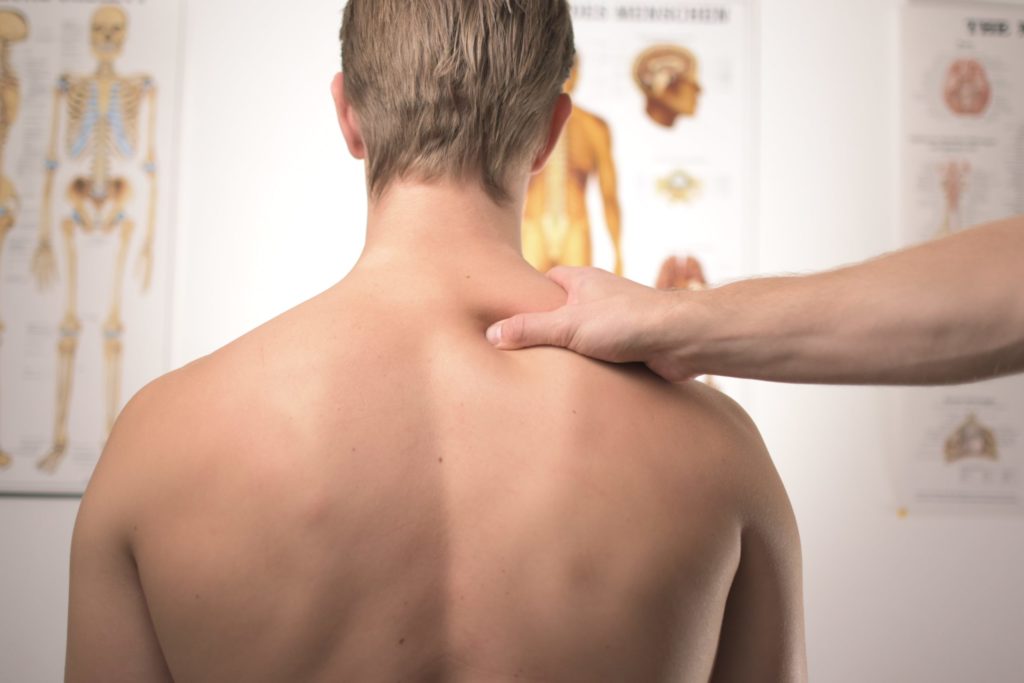Do you live with chronic pain? You’re likely tired of being given pain killers or other medication to provide temporary pain relief for headaches or neck, shoulder, and joint pain. However, they also have damaging side effects and don’t address the root of the problem.
Perhaps you’re wondering what to do after a motorcycle crash or another accident. If you’ve sustained a serious injury, the first thing you should do is seek medical attention. After you’ve sought immediate medical attention, filed police reports, and checked your insurance policy, it might be beneficial to seek subsequent therapy to minimize lasting chronic pain. There are a number of minimally invasive treatments that work to alleviate muscle pain through natural means.
Topical Ointments
Topical creams and ointments with natural ingredients can provide relief from discomfort. An increasingly popular natural remedy for soreness is CBD. An extract from the hemp plant, CBD oil can relieve tension related to muscle pain. CBD products, or cannabinoid, only contains trace amounts of THC, meaning there are no psychoactive side effects.
Available in a wide variety of topical products from CBD pain gels to CBD salves and lotions, CBD products are a non-invasive, natural remedy that can help keep your soreness under control. Combining the power of CBD with the soothing nature of active ingredients like menthol, camphor, and licorice root extract, CBD pain gels, and balms work to ease irritated joints with a soothing, cooling effect. A consistent application of CBD topicals brings relief while helping to restore muscles.
Herbal Supplements and Oils
Nature is abundant with herbal defenses against pain and inflammation. Incorporate spices and herbs with anti-inflammatory properties, such as turmeric, into your cooking and diet to help reduce the severity of pain.
Essential oils, which are concentrated extracts from plants with natural ingredients, are also effective remedies. Add several drops into a bath or mix with a carrier oil such as coconut or olive oil for topical application. Peppermint, eucalyptus, sandalwood, and clove oils are just a few tinctures that effectively work to reduce swelling, ease tension, and alleviate muscular pain.
Massage and Acupuncture
Therapeutic techniques, such as massage and acupuncture, are highly effective at providing relief for chronic pain. Your insurance carrier may even cover such expenses. Massage uses a variety of pressure, strokes, and kneading to stimulate blood flow and release tension lying within the muscles.
Acupuncture is an ancient Eastern form of medicine that uses fine needles placed along points in the body’s meridian to restore balance to the body. There is also a belief that the needles stimulate nerves, muscles, and connective tissue, which may boost the body’s natural painkillers. Both massage and acupuncture are safe and encourage physical as well as mental relaxation.
Yoga and Exercise
Gentle stretching opens the body and releases tension in the muscles. Slow, intentional exercise is one of the best medicines to not only relieve but improve the root cause of your chronic pain. It is advisable to consult a doctor or specialist before developing an exercise routine to not further exacerbate your injuries.
Therapeutic exercises, such as yoga and Tai Chi, can be hugely beneficial at encouraging the opening and strengthening of the muscles, joints, and body. Studies have shown that even a weekly yoga session is effective at relieving chronic pain, particularly lower back pain. It is a good idea to at least practice a gentle series of movements fifteen minutes a day, a few times a week, to alleviate your symptoms and contribute to healing.
Mindfulness
Even though it may seem that physical ailments can only be healed through physical mechanisms, forms of psychotherapy are also effective at treating chronic pain. Adopt positive thinking patterns, especially when related to your pain. Work with mind-body relaxation techniques such as meditation, mindfulness, muscle relaxation, and breathing exercises.
All of these techniques can work to mentally relax the body and bring you some relief. More importantly, these techniques will help you form a positive attitude surrounding your pain management and a mindset that can be extended into other areas of your life.

